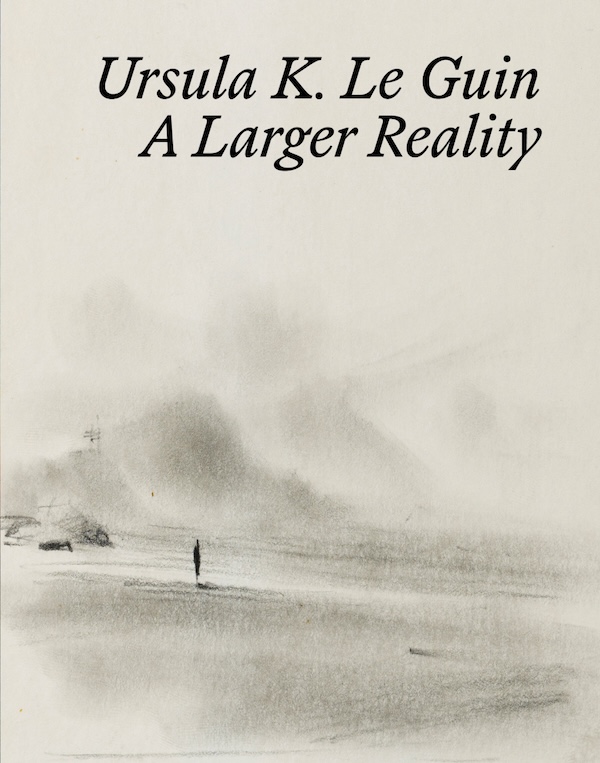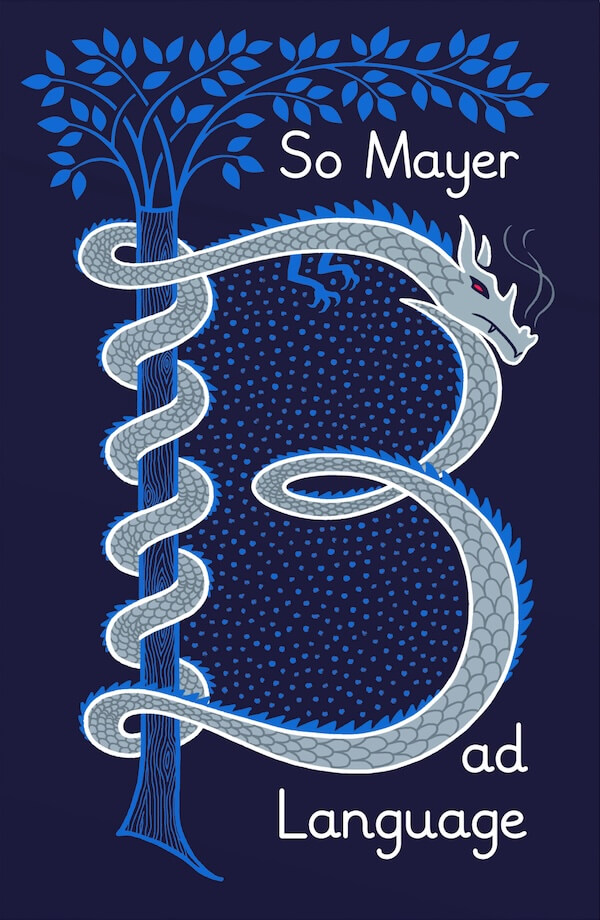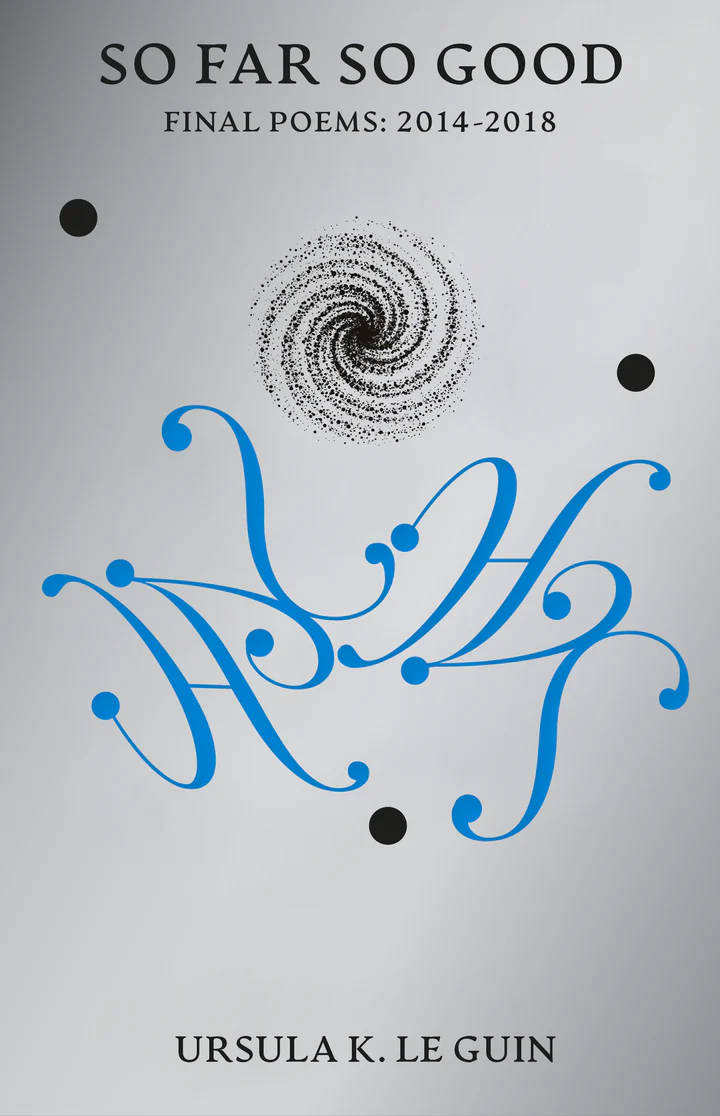
Catwings
Four young cats with wings leave the city slums in search of a safe place to live, finally meeting two children with kind hands.
Language: English

Four young cats with wings leave the city slums in search of a safe place to live, finally meeting two children with kind hands.
Language: English

Ursula K. Le Guin, Conner Bouchard-Roberts
A beautiful compilation of poems, stories, essays, talks, and illustrations by Ursula K. Le Guin. Edited and designed by Conner Bouchard-Roberts.
With additional essays on Le Guin's thinking and craft by: adrienne maree brown, Isabelle Stengers, Moe Bowstern, Lola Milholland, Nisi Shawl, David Naimon, Mary Anne Mohanraj, Margaret Killjoy, Julie Phillips, and Harold Bloom.
This book serves as the companion publication to a gallery exhibition, of the same name, about Ursula’s life and work, showing at Oregon Contemporary Museum (from Nov 1st 2025 - Feb 8th 2026 in Portland, OR) curated by the Author’s son, Theo Downes-Le Guin.

There is no such thing as a safe word.
In Bad Language, So Mayer blends memoir and manifesto as they explore the politics of speech, while looking at how language has been used – and abused – in their own life. What is the relationship between language and sexual violence? And how can we ‘make ourselves up’ in language when words themselves are encoded by a dominant culture that insists we see ourselves as powerless listeners rather than active speakers?
Examining the semantic traps of their multi-lingual childhood – and taking in texts from the Torah to Grimms’ Fairytales, from protest bust cards to the works of Ursula K. Le Guin – Mayer asks who gets to speak, and who is forced into silence. Bad Language calls out the harm that words can do, while searching for crafty ways through which we can collectively reclaim language for protest and pleasure.
‘Mayer’s writing is generous, astute and sincere; in Bad Language, they choose their words carefully, using incantation and spell to distil a complex argument – the transformative power of language lay in its ability to shape sense perception. For Mayer, the task of ‘making ourselves up’ is another way of asking, what kind of world do we want to live in?’ – Lola Olufemi
SO MAYER is a writer, editor, bookseller and organiser. Truth & Dare, their first collection of speculative fiction, was longlisted for the Republic of Consciousness and Edge Hill Short Story prizes. With Sarah Shin, they co-edited Ursula K. Le Guin, Space Crone, winner of the 2024 Locus Award for non-fiction. Bad Language is their second book for Peninsula, after A Nazi Word for a Nazi Thing.

Who decides what happens after sex? The last decade has seen many significant changes to the laws governing women’s reproductive rights around the world, from liberalisation in Ireland to new restrictions in the USA. After Sex offers personal and political perspectives from the mid-20th century to the present day, setting feminist classics alongside contemporary accounts. These essays, short stories and poems trace the debates and tell the stories; together, they ask us to consider what reproductive justice might look like, and how it could reshape sex.
The writers pay special attention to people — both fictional and real — who have sought control over their sexual lives, and the joy, comedy, difficulties and disappointments that entails. But above all, After Sex testifies to the power of great writing to show us why that freedom is worth pursuing — without shame and without apology.
With contributions from:
Lauren Berlant, Joanna Biggs, Edna Bonhomme, Gwendolyn Brooks, Beverley Bryan, Stella Dadzie and Suzanne Scafe, Storm Cecile, Lucille Clifton, Rachel Connolly, T.L. Cowan, ’Jane Does’, Maggie Doherty, Nell Dunn, Andrea Dworkin, Anne Enright, Deborah Friedell, Tracy Fuad, Kristen Ghodsee, Vivian Gornick, Donna Haraway, bell hooks, Barbara Johnson, Jayne Kavanagh, Lisa Hallgarten and Angela Poulter, Jamaica Kincaid, Patricia Knight, R.O. Kwon, Ursula K. Le Guin, Natasha Lennard, Sophie Lewis, Audre Lorde, Amelia Loulli, Erin Maglaque, Holly Pester, Adrienne Rich, Denise Riley, Sally Rooney, Loretta J. Ross, Madeleine Schwartz, SisterSong, Sophie Smith, Annabel Sowemimo, Amia Srinivasan, Keeanga-Yamahtta Taylor, Judith Jarvis Thomson, Alice Walker and Bernard Williams.

In The Carrier Bag Theory of Fiction, visionary author Ursula K. Le Guin tells the story of human origin by redefining technology as a cultural carrier bag rather than a weapon of domination.
Hacking the linear, progressive mode of the Techno-Heroic, the Carrier Bag Theory of human evolution proposes: ‘before the tool that forces energy outward, we made the tool that brings energy home.’ Prior to the preeminence of sticks, swords and the Hero’s killing tools, our ancestors’ greatest invention was the container: the basket of wild oats, the medicine bundle, the net made of your own hair, the home, the shrine, the place that contains whatever is sacred. The recipient, the holder, the story. The bag of stars.
This influential essay opens a portal to terra ignota, where the possibilities of human experience and knowledge can be discovered anew.

Ursula K. Le Guin began writing as a poet, before writing across genres for her entire life. This elegiac collection of poems, completed shortly before her death in 2018, reflects on the soul, mortality and the mysteries beyond. Weaving together rich sounds, echoes of myth and her vivid sense of our place in the natural world, So Far So Good walks between the knowable and the unknown with characteristic daring.
“great teacher. great spirit.” adrienne maree brown

Strange Tales by
Jean Lorrain / Michael P. Daley / Lou Perliss / Marcel Schwob / Dan A. Stitzer / Jeremy Kitchen / Janice Law / Joris-Karl Huysmans / Julia Bembenek / Mark Iosifescu / Villiers de l’Isle-Adam
“This is the missing link between Baudelaire and the Area X Trilogy, strange, beautiful, and bizarre as any denizen of a romantic ruin, nuclear test site, or poisonous overgrown garden could ever want.” — CrimeReads
“Obscure, hilarious, profane, and human, Echoes of a Natural World brilliantly juxtaposes fresh oddities with classic gems of French literature. Speaking from the margins of fiction, but never marginal, each piece in this collection affirms that great, weird writing never goes out of style.” — Maryse Meijer, Heartbreaker
“Echoes of a Natural World submerges you in the high strangeness of the world around us. The eleven tales herein—both new works and rediscovered gems—form an uncanny menagerie. Its monstrous toads, murmuring fungi, and ghostly boars will haunt your imagination.” — Gabriel Mckee, Pink Beams of Light from the God in the Gutter: The Science-Fictional Religion of Philip K. Dick
Echoes of a Natural World presents a continuum of discomforting reactions to a world perpetually out of whack. Nature—so oft considered the epitome of “order” and “tranquility” in the human mind—is herein explored at its most aberrant, absurd, and nightmarish. Through eleven weird tales, Echoes of a Natural World raises questions about Nature’s influence on the mind and the mind’s unnatural influence on Nature.
Contributions include new translations of fin de siècle Decadent masters—sensual accounts of amphibian horrors and secret caverns below country inns. These sparkling 19th century pieces sit against contemporary American fiction that delivers haunting scenarios and darkly comic ontological routines. Behold accounts of whispering mold and Midwestern strip-mall desolation; occult hypnosis and regenerated limbs; void-bound train rides with a hallucinatory hustler king; ghost boars in German battlefields; spiraling anxiety that only peach trees and country cottages could produce. Parse through questionable documents that detail the aftershocks of a once idyllic world no longer salvageable.
This kaleidoscopic collection wades in those nebulous waters where the inner world and outer landscape mesh. For as we barrel into a reality where technology has seemingly penetrated even the most remote corners of the earth, one must ask: Is it even possible to have a genuine interaction with Nature anymore? Has it ever been? Or have these longings always been the romantic delusions of a species obsessed with itself? Echoes of a Natural World defies easy categorization and easy answers.
“What’s interesting about the project here—and I think that it succeeds beautifully—is that these tales represent American voices and symbolist, fin de siècle, French decadent voices with a century between them and they’re all interlocked perfectly.”—Chris Via, Leaf by Leaf
Edited by Michael P. Daley. Introduction and translations from the French by Sam Kunkel.

With the vinyl recording of a musical, the artist proposes a new chapter in her project on fermentation as a living, palpable theory that blends body, feminism, and community.
Gut Feelings is a musical sung and performed by giant bacteria. It is a reference to lesbian separatist communities and more specifically to their capacity to create other forms and ways of life, outside of unliveable norms. The motif of fermentation here becomes a metaphor for the activity of a micro-organic and ungendered community, both human and non-human, alive, moving and changing form. In the manner of fermentation, this community in constant activity evolves autonomously, feeding itself and the space around it.
Louise Siffert (born 1988 in Strasbourg, lives and works in Paris) is a French performer. The world of work, alienation, the search for well-being, the place of habits: Louise Siffert's performances question and relate these current themes in theatrical and burlesque settings. Anchoring her work in scientific and sociological reflections, she creates characters with exacerbated personalities, overexploiting the codes of language and behavior that are attributed to them.

Bárbara Acevedo Strange, Eva Tatjana Stürmer
Sun of an Ignored Putrid Productivity is a speculative novel about the influence of artificial intelligence and accelerating technological progress on our human interactions. The dialogical script is based on personal reflections and pop-cultural, scientific and philosophical references from the beginnings of cybernetics to more recent voices. Randomly generated, constructed and quoted contents cannot be distinguished from each other. The borderline between fact and fiction becomes blurred. What is left is a flickering effect, disorientation, which reflects our perception of reality under conditions of never-ending information overflow.